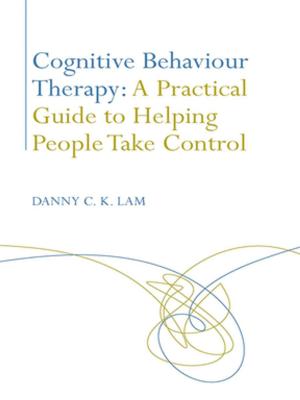Politics of Violence
Militancy, International Politics, Killing in the name
Nonfiction, Social & Cultural Studies, Political Science, Politics, City Planning & Urban Development, History & Theory| Author: | Charlotte Heath-Kelly | ISBN: | 9781135005900 |
| Publisher: | Taylor and Francis | Publication: | October 15, 2013 |
| Imprint: | Routledge | Language: | English |
| Author: | Charlotte Heath-Kelly |
| ISBN: | 9781135005900 |
| Publisher: | Taylor and Francis |
| Publication: | October 15, 2013 |
| Imprint: | Routledge |
| Language: | English |
Critical thinkers like Foucault, Benjamin, Derrida and Žižek have long challenged the liberal separation of violence and politics by highlighting the implicit violence within political and economic structures. But in an era of international terrorism and counter-terrorism, should we not also reverse the question to ask ‘what is political about violence?’ Using interviews with ex-militants from Italian leftist struggle of the 1970s and the Cypriot anti-colonial militancy of the 1950s, Heath-Kelly explores the political utility of violence. Studies of conflict and international politics rarely address how killing and injuring function to win wars or overturn regimes. But by rejecting conceptions of violence as a means-to-an-end found in the works of Clausewitz and Arendt, this book draws upon studies of pain to explore the ways in which armed struggle produces new political subjects and regimes, and discredits others, through experiences of violence. Using Elaine Scarry’s conception of pain as ‘world-destroying’ and Walter Benjamin’s delineation of violence as either lawmaking or law-preserving to frame ex-militant discussions of participation in armed struggle, the book contributes a pathbreaking empirical exploration of violence to international politics literatures - moving the study of political violence away from an understanding of violence as just a means-to-an-end.
Drawing out insights that have a far wider resonance and significance for the analysis of the ‘politicality’ of political violence, this work will be of interest to students and scholars in areas such as international relations, security studies and international relations theory.
Critical thinkers like Foucault, Benjamin, Derrida and Žižek have long challenged the liberal separation of violence and politics by highlighting the implicit violence within political and economic structures. But in an era of international terrorism and counter-terrorism, should we not also reverse the question to ask ‘what is political about violence?’ Using interviews with ex-militants from Italian leftist struggle of the 1970s and the Cypriot anti-colonial militancy of the 1950s, Heath-Kelly explores the political utility of violence. Studies of conflict and international politics rarely address how killing and injuring function to win wars or overturn regimes. But by rejecting conceptions of violence as a means-to-an-end found in the works of Clausewitz and Arendt, this book draws upon studies of pain to explore the ways in which armed struggle produces new political subjects and regimes, and discredits others, through experiences of violence. Using Elaine Scarry’s conception of pain as ‘world-destroying’ and Walter Benjamin’s delineation of violence as either lawmaking or law-preserving to frame ex-militant discussions of participation in armed struggle, the book contributes a pathbreaking empirical exploration of violence to international politics literatures - moving the study of political violence away from an understanding of violence as just a means-to-an-end.
Drawing out insights that have a far wider resonance and significance for the analysis of the ‘politicality’ of political violence, this work will be of interest to students and scholars in areas such as international relations, security studies and international relations theory.















